Unlocking Cannabis Potential: Anxiety Relief & Safe Integration
Cannabis can aid in managing anxiety symptoms, but navigating its diverse world requires understandi…….
In the ever-evolving world of alternative therapies, cannabis has emerged as a subject of intense interest, particularly for individuals seeking relief from various ailments, including anxiety. The concept of using specific cannabis strains tailored to alleviate anxiety symptoms is gaining traction globally, driving research and shaping public discourse. This article aims to dissect the multifaceted phenomenon of cannabis strains for anxiety, offering an in-depth analysis that spans historical context, scientific understanding, global impact, economic insights, technological innovations, regulatory landscapes, real-world applications, and a glimpse into the future. By delving into these aspects, we aim to equip readers with a comprehensive knowledge base on this controversial yet promising topic.
Cannabis Strains for Anxiety Defined: At its core, the term refers to particular varieties or cultivars of cannabis that are believed to possess therapeutic properties in managing and reducing anxiety disorders. These strains are selected or bred for their unique chemical profiles, specifically focusing on cannabinoid content and ratios, which research suggests can interact with the human endocannabinoid system (ECS) to produce anxiolytic (anxiety-reducing) effects.
Historical Perspective: The exploration of cannabis as a medicinal herb dates back centuries, with ancient cultures utilizing it for various ailments, including mental health conditions. However, modern interest in cannabis strains for anxiety has been catalyzed by growing acceptance and research into the plant’s therapeutic potential. In recent years, numerous studies have explored the effects of specific cannabinoids like cannabidiol (CBD) and tetrahydrocannabinol (THC) on anxiety disorders, leading to a surge in demand for these specialized strains.
Significance and Application: Understanding cannabis strains for anxiety is crucial for several reasons:
The global landscape of cannabis strains for anxiety is dynamic and multifaceted, with varying levels of acceptance, regulation, and cultural integration across different regions. Here’s an overview:
| Region | Legal Status | Market Trends | Cultural Integration |
|---|---|---|---|
| North America (USA & Canada) | Legal for medical and recreational use in many states/provinces | Rapidly growing market with a focus on high-CBD, low-THC strains | Widely accepted, with cannabis culture thriving in urban areas |
| Europe | Mixed; some countries allow medical cannabis while others have strict regulations | Increasing demand for specialty strains, particularly in Germany and the UK | Growing acceptance, especially in countries like the Netherlands and Spain |
| Asia (select countries) | Legal for medical use in a few countries like Israel and Japan | Emerging market with significant potential | Limited cultural integration due to conservative attitudes |
| Latin America | Mixed; some countries have decriminalized cannabis while others maintain strict controls | Local breeds gaining recognition, often with high THC content | Traditional uses documented among indigenous communities |
| Australia & New Zealand | Legal for medical use | Growing interest in local cultivation and research partnerships | Increasing awareness, though cultural barriers persist |
Key Trends:
The economic impact of cannabis strains for anxiety is multifaceted, touching upon various sectors and markets worldwide.
Market Dynamics:
Investment Opportunities:
Challenges and Regulatory Factors:
Technological advancements play a pivotal role in the development and understanding of cannabis strains for anxiety.
Genetic Analysis and Breeding: Modern breeding techniques, including genetic testing and selection, enable the creation of highly specialized strains with precise cannabinoid profiles. This ensures consistency and quality control, catering to specific therapeutic needs.
Cannabinoid Extraction and Purification: Advanced extraction methods, such as CO2 extraction, allow for the isolation of individual cannabinoids, enabling the production of concentrated oils and capsules with tailored cannabinoid ratios.
Pharmacokinetic Studies: Research into how cannabinoids are absorbed, distributed, metabolized, and excreted (pharmacokinetics) helps in optimizing dosing and understanding drug interactions.
Nanotechnology and Drug Delivery: Innovations in nanotechnology are being explored to enhance the bioavailability and delivery of cannabinoids, potentially improving their therapeutic efficacy.
Digital Health Solutions: Mobile apps and digital platforms are emerging to assist patients in tracking their symptoms, medication use, and treatment outcomes, facilitating personalized care.
The regulatory environment surrounding cannabis strains for anxiety is complex and varies widely across jurisdictions, impacting accessibility and research.
International Regulations:
National Legal Frameworks:
Challenges and Considerations:
Numerous case studies and anecdotal reports attest to the potential benefits of cannabis strains for anxiety management, although robust clinical research is still in progress.
Case Study 1: PTSD and Cannabis Therapy: A study published in Frontiers in Psychiatry (2019) examined the use of medical cannabis in veterans with post-traumatic stress disorder (PTSD). Participants reported significant reductions in PTSD symptoms, anxiety, and depression, along with improved sleep quality. The majority also experienced a decrease in the use of traditional prescription medications for these conditions.
Case Study 2: Anxiety in Cancer Patients: A pilot study in JAMA Oncology (2016) explored the effect of CBD-enriched cannabis on anxiety and sleep in patients with cancer. Results showed a significant reduction in anxiety levels, leading researchers to suggest that further research is warranted to optimize CBD doses and formulations for this population.
Individual Success Stories: Many individuals have shared personal accounts of finding relief from chronic anxiety, social anxiety disorder, generalized anxiety disorder (GAD), and even panic attacks through the use of carefully selected cannabis strains. These stories highlight the potential benefits but also underscore the importance of professional guidance and personalized treatment plans.
While cannabis strains for anxiety hold promise, several challenges and concerns must be addressed to ensure safe and effective use.
Lack of Comprehensive Research: The current body of research is still relatively limited, particularly regarding the long-term effects and optimal dosing of cannabis for anxiety disorders. More robust clinical trials are needed to establish evidence-based guidelines.
Cannabis Composition and Variability: Cannabis plants contain over 100 cannabinoids, terpenes, and flavonoids, making product composition highly variable. This variability can impact therapeutic outcomes and necessitates standardized testing and transparency in labeling.
Patient Safety and Risk Mitigation: Ensuring patient safety is paramount. Educating consumers about potential risks, such as psychosis or cognitive impairment, particularly in young people, is crucial. Additionally, monitoring for adverse events and interactions with other medications is essential.
Access and Equity: Addressing disparities in access to quality cannabis products for marginalized communities and those with limited financial resources is a significant challenge. Ensuring equitable access to safe, effective treatments should be a priority.
Legal and Regulatory Compliance: Patients, caregivers, and healthcare providers must stay informed about local laws and regulations to avoid legal repercussions and ensure compliance with prescribed treatment plans.
The future of cannabis strains for anxiety management appears promising, with several avenues for growth and development.
Research and Clinical Trials: Increased funding and support for clinical research will lead to a better understanding of cannabinoid interactions and their impact on various mental health conditions. Well-designed trials will help establish optimal dosing, strain selection, and delivery methods.
Personalized Medicine: The field is moving towards personalized treatment approaches, tailoring cannabis therapies to individual patient needs based on genetics, physiology, and specific symptoms. This may involve combination therapies or targeted cannabinoid profiles.
Integrative Healthcare: Cannabis-based anxiety treatments are likely to become integral components of integrative healthcare models, where conventional medicine is combined with alternative therapies to achieve optimal patient outcomes.
Global Collaboration: International cooperation in research, sharing of best practices, and harmonization of regulations will foster a more unified approach to cannabis medicine, benefiting patients worldwide.
Cannabis strains for anxiety management represent a fascinating intersection of traditional herbal remedies and modern pharmaceutical science. The potential benefits for individuals suffering from various anxiety disorders is significant, but prudence and careful consideration are essential. As research advances and regulations evolve, the field stands on the cusp of transforming lives and reshaping our understanding of mental health care.
By balancing promising findings with ongoing challenges, we can chart a course towards responsible development and integration of cannabis-based therapies into mainstream healthcare systems. This approach ensures that patients have access to safe, effective treatments while safeguarding public health and safety.
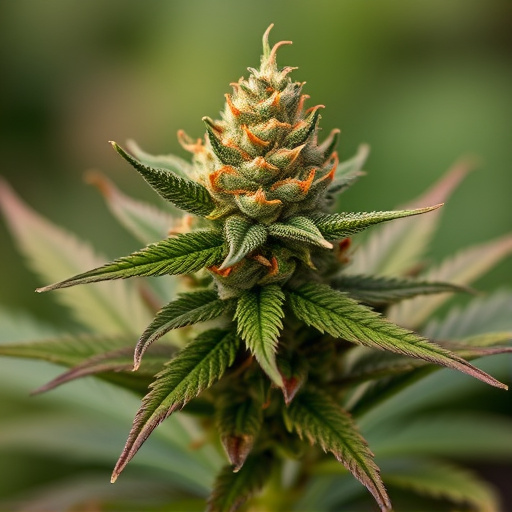
Cannabis can aid in managing anxiety symptoms, but navigating its diverse world requires understandi…….
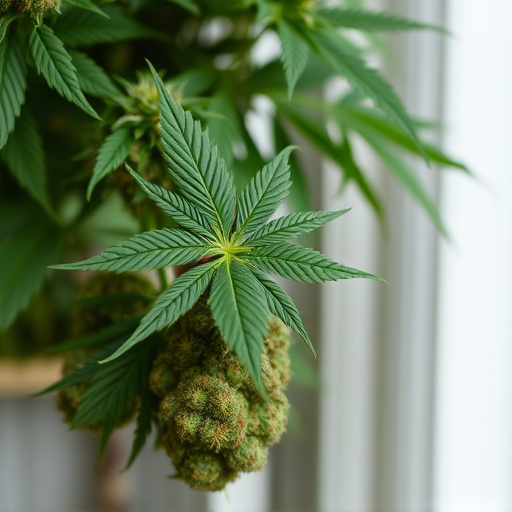
Selecting the right cannabis strain for anxiety relief is crucial due to varying chemical compositio…….
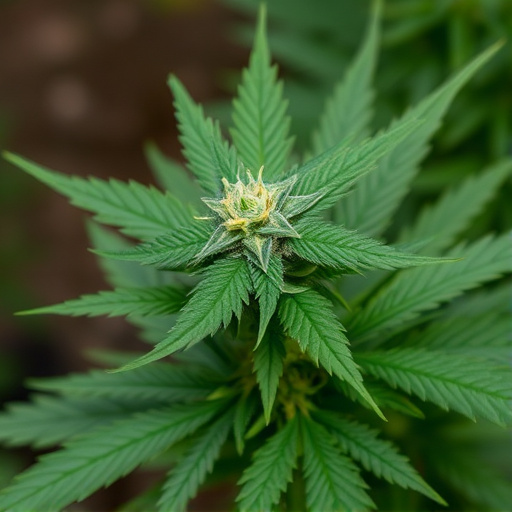
The genetics and cannabinoid profile of cannabis strains significantly impact their effects on anxie…….
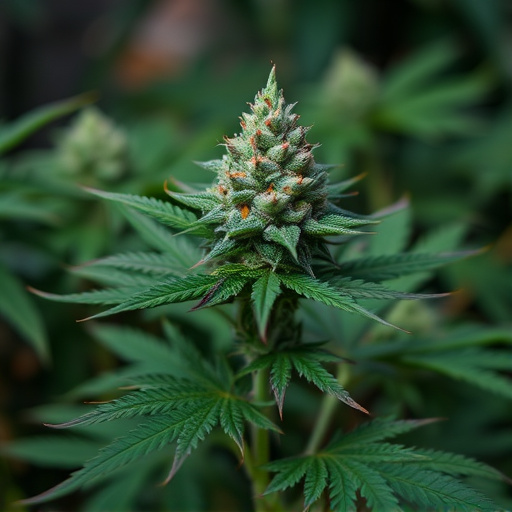
Cannabis strains for anxiety leverage cannabinoids like THC and CBD to offer diverse effects. High-C…….
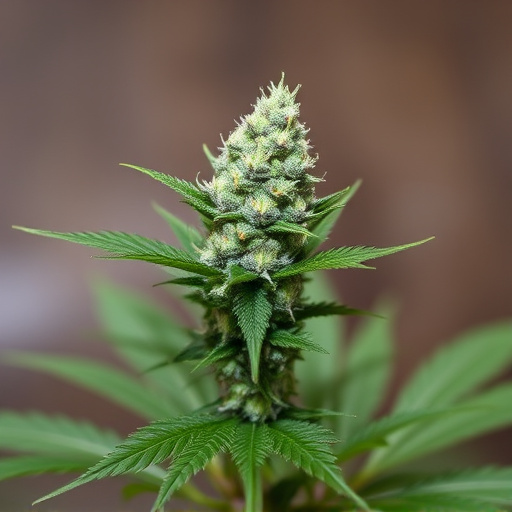
High-THC cannabis has gained popularity for its potential in anxiety relief through interaction with…….
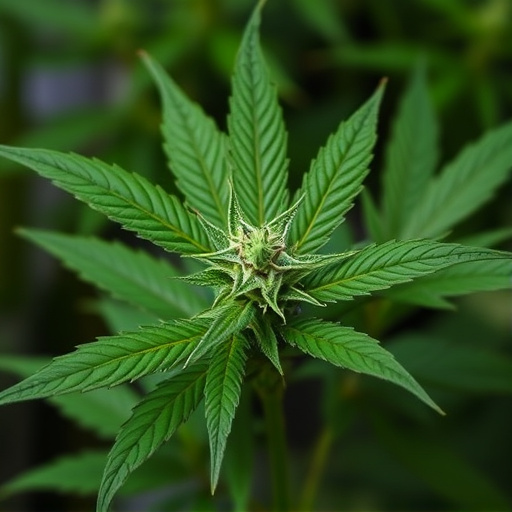
Cannabis strains for anxiety relief have gained popularity due to their potential therapeutic effect…….
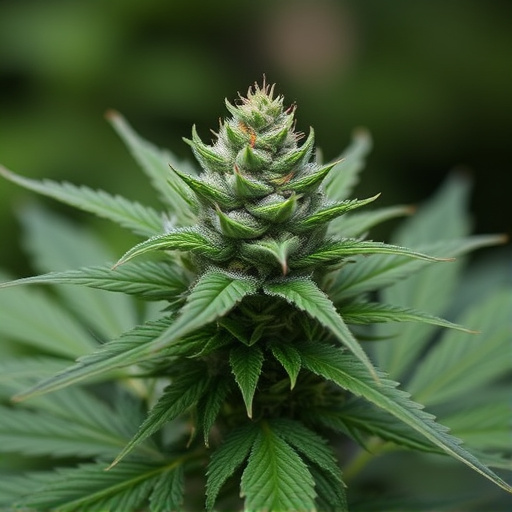
TL;DR:Cannabis strains high in THC can alleviate anxiety and stress but require responsible use and…….
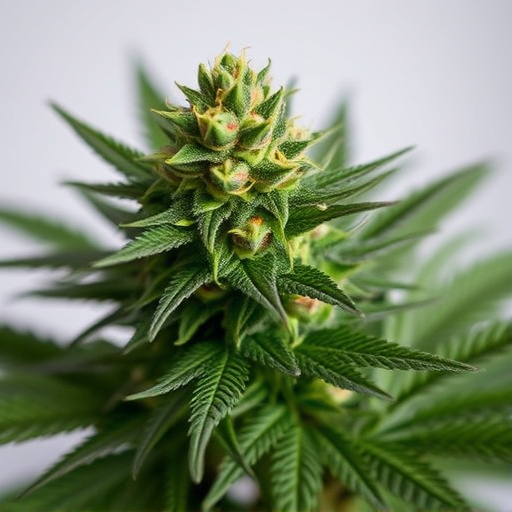
Cannabis can help manage anxiety, but the effects vary depending on strain composition. High-THC str…….
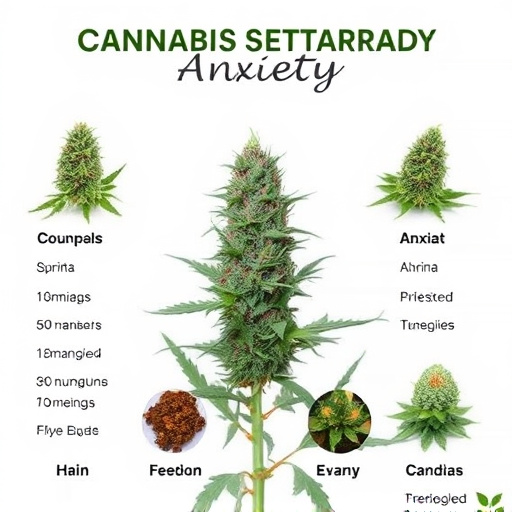
Cannabis consumption methods like joints, pipes, and bongs impact anxiety relief through varying com…….